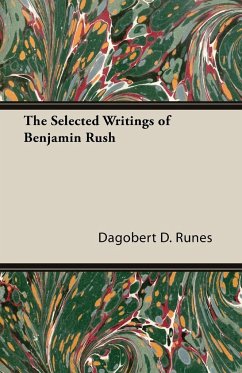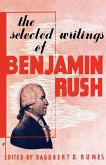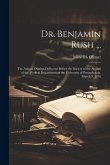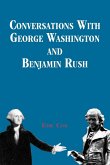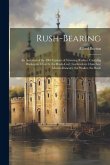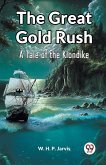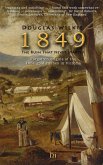This early work by Benjamin Rush is both expensive and hard to find in its first edition. It contains a collection of writings by one of the original signatories of the American Declaration of Independence. This is a fascinating work and thoroughly recommended for anyone interested in the works of Benjamin Rush. Many of the earliest books, particularly those dating back to the 1900s and before, are now extremely scarce. We are republishing these classic works in affordable, high quality, modern editions, using the original text and artwork.
Bitte wählen Sie Ihr Anliegen aus.
Rechnungen
Retourenschein anfordern
Bestellstatus
Storno

